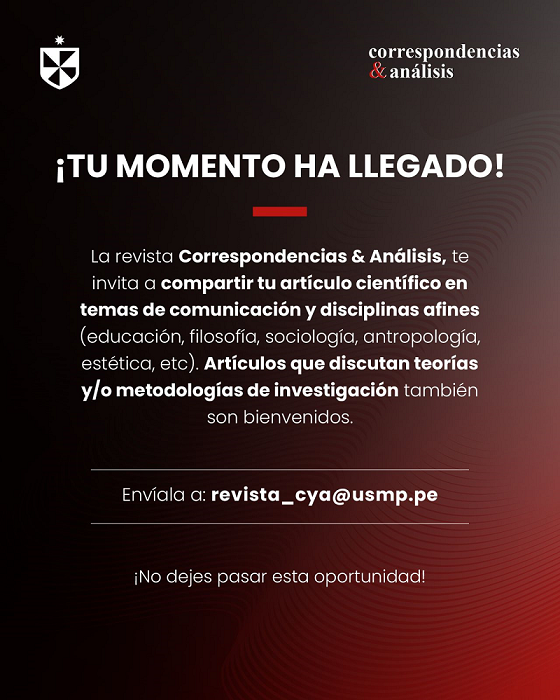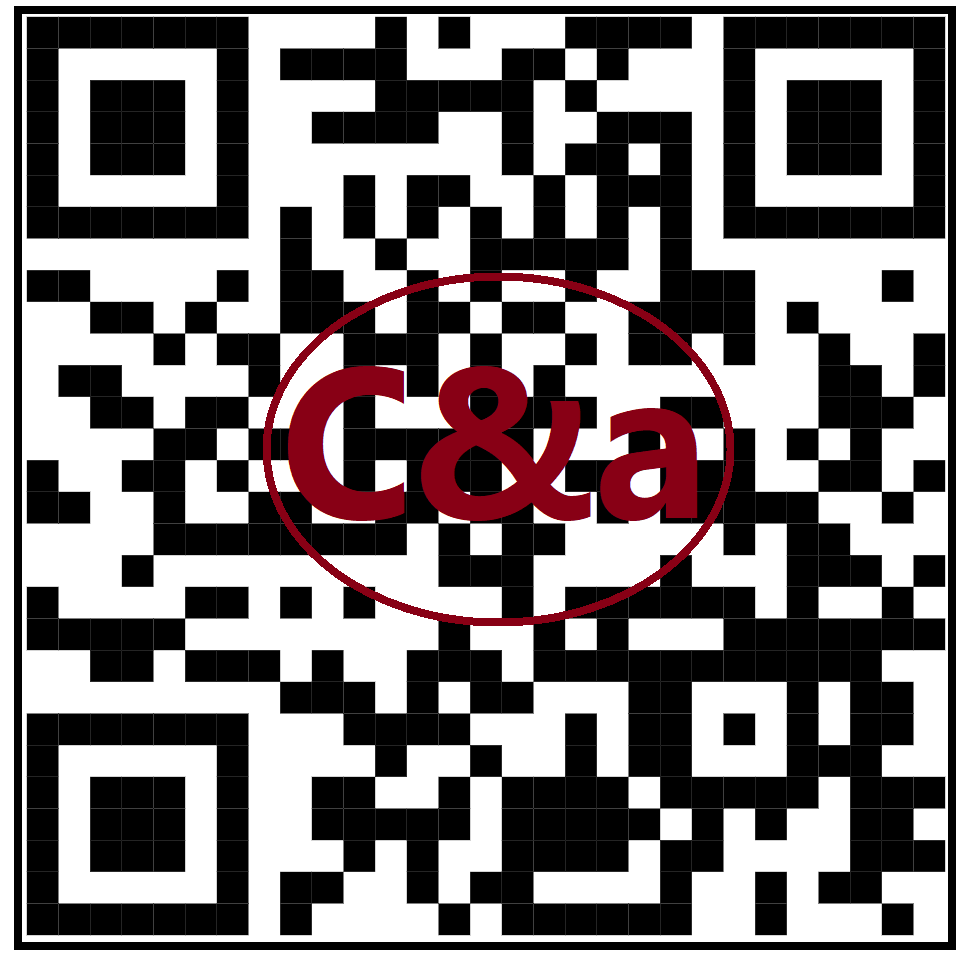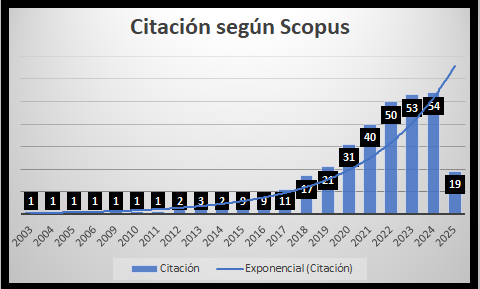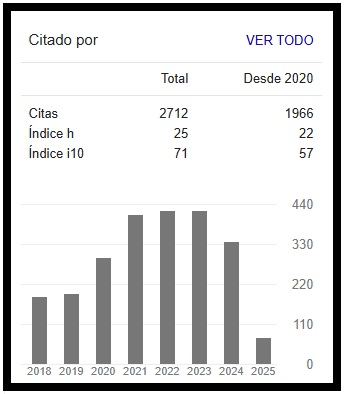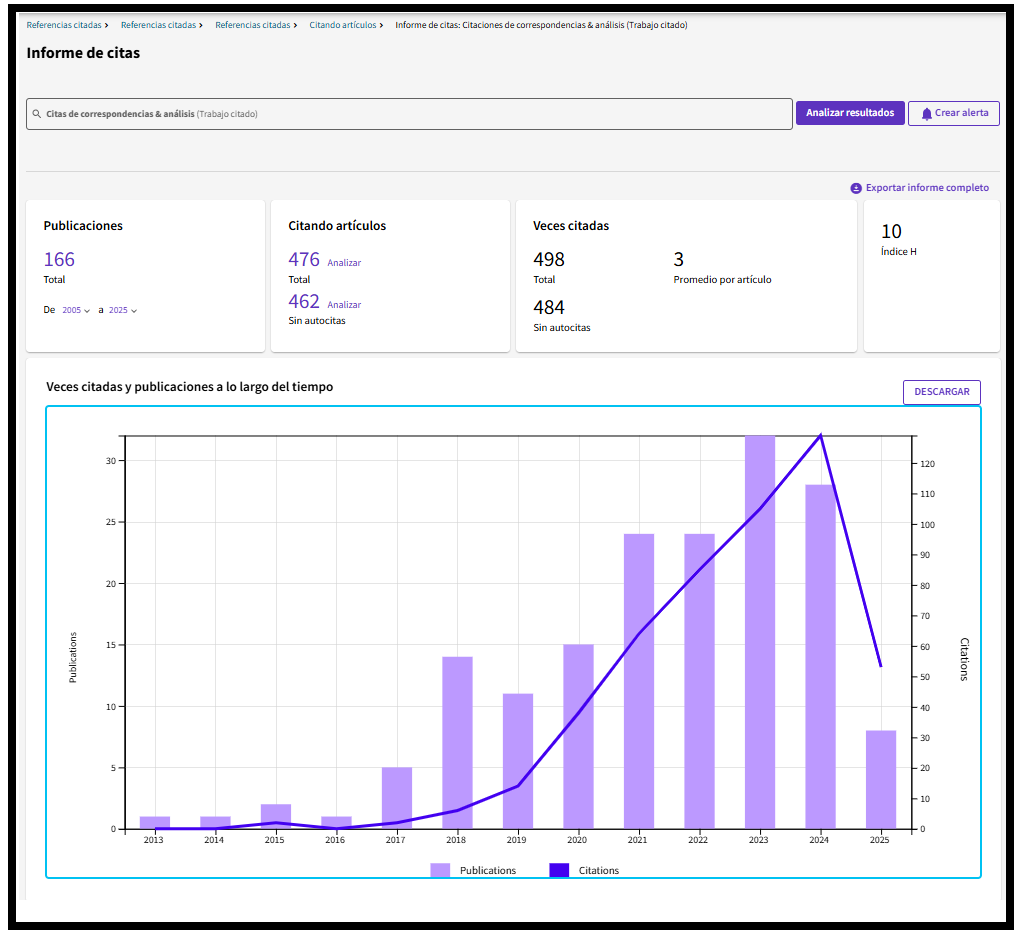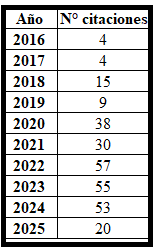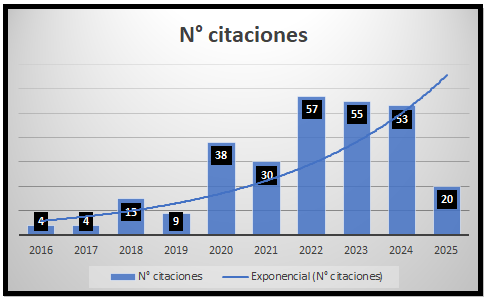¿Derechos humanos en línea? Hacia un marco cosmopolita para la formulación de normativas en la Internet de la era digital
DOI:
https://doi.org/10.24265/cian.2018.n8.01Palabras clave:
Internet, Normativa, Gobernanza, Derechos humanos, Medios digitalesResumen
Este artículo aborda un importante reto para la gobernanza de la Internet: las dificultades que conlleva la articulación de la multiplicidad de escenarios y contextos que la conforman. El enfoque de “múltiples stakeholders” surge como el camino más adecuado para construir la gobernanza de la Internet. Sin embargo, la materialización de este enfoque resulta difícil, debido a los posibles actores y situaciones encontradas en la web.Este artículo, basándose en la noción de cosmopolitismo de Boczkowski & Siles (2014), propone un marco alternativo para estudiar la formulación de políticas en la Internet, aplicándolo en la Declaración de Privacidad y Seguridad Digital Avanzada por la Comisión Mundial sobre Gobernanza de la Internet, con la finalidad de mostrar cómo puede ayudar a fomentar nuestra comprensión de los derechos humanos en la era digital. Se argumenta que el cosmopolitismo puede ofrecer un método que ayude a transformar una compleja red de interacciones en un mapa caracterizado por diferentes objetivos y relaciones, a fin de generar políticas de Internet más dialécticas.
Métricas
Descargas
Referencias
Adam, S. & Kriesi, H. (2007). The Network Approach. En P. A. Sabatier (Ed.), Theories of Policy Process (pp. 129-154). Massachusetts: Westview Press.
Ampuja, M. (2011). Globalization Theory, Media-Centrism and Neoliberalism: A Critique of Recent Intellectual Trends. Critical Sociology, 38(2), 281-301.
Bauman, Z., Bigo, D., Esteves, P., Guild, E., Jabri, V., Lyon, D. & Walker, R. (2014). After Snowden: Rethinking the Impact of Surveillance. International Political Sociology, 8, 121-144.
Beck, U. (2000). The cosmopolitan perspective: sociology of the second age of modernity. The British Journal of Sociology, 51(1), 79-105.
Beck, U. (2002). The cosmopolitan society and its enemies. Theory, culture & society, 19(1-2), 17-44.
Beck, U. (2009). Critical theory of world risk society: a cosmopolitan vision. Constellations, 16(1), 3-22.
Bianco, J. (2004). Processes of policy making and theories of public policy: Relating power, policy and professional knowledge in literacy agendas. Montreal: University of Melbourne.
Boczkowski, P. & Siles, I. (2014). Steps toward Cosmopolitanism in the Study of Media Technologies: Integrating Scholarship on Production, Consumption, Materiality, and Content. En T. Gillespie, P. J., Boczkowski, & K. A. Foot (Eds.), Media Technologies: Essays on Communication, Materiality and Society. Massachusetts: MIT Press.
Braman, S. (2004). Where has media policy gone? Defining the field in the twenty-first century. Communication Law and Policy, 9(2), 153-182.
Castells, M. (2008). The New Public Sphere: Global Civil Society, Communication Networks, and Global Governance. The ANNALS of the American Academy of Political and Social Science, 616(1), 78-93.
De Smet, A., Dirix, J., Diependaele, L. & Sterckx, S. (2015). Globalization and Responsibility for Human Rights. Journal of Human Rights, 14(3), 419-438.
Drake, W. (2004). Reframing Internet governance discourse: Fifteen baseline propositions. Internet Governance: Toward a Grand Collaboration. Recuperado de http://www.un-ngls.org/orf/pdf/drake.pdf
Dutton, W. (2005). A new framework for taking forward the Internet governance debate. En Position paper for The Struggle over Internet Governance: Searching for Common Ground Forum (pp. 7-10). Oxford: University of Oxford. Recuperado de http://www.oii.ox.ac.uk/collaboration/?rq=specialevents/20050505
Dutton, W. & Peltu, M. (2007). The emerging Internet governance mosaic: connecting the pieces. Information Polity, 12(1), 63-81.
Echeberría, R. (2012). Human Rights and Internet. En W. Kleinwächter (Ed.), Human Rights and Internet Governance (pp. 50-51). Berlín: Internet & Society Collaboratory.
García Canclini, N. (1990). Culturas híbridas: estrategias para entrar y salir de la modernidad. Buenos Aires: Paidós.
García Canclini, N. (2012). Communication and Human Rights. En A. Vega Montiel (Ed.), Communication and Human Rights (pp. 17-28). México, DF: Universidad Nacional Autónoma de México.
Giddens, A. (1986). The Constitution of Society: Outline of the Theory of Structuration. Oxford: Blackwell Publishing.
Global Commission on Internet Governance. (2015).Toward a Social Compact for Digital Privacy and Security Statement. Recuperado de https://www.chathamhouse.org/publication/toward-social-compact-digital-privacy-and-security.
Hall, P. (1993). Policy Paradigms, Social Learning, and State: The Case of Economic Policymaking in Britain. Comparative Politics, 25(3), 275-296.
Hamelink, C. (2011). Global Justice and Global Media: the Long Way Ahead. En S. Jansen, J. Pooley & L. Taub-Pervizpour (Eds.), Media and Social Justice. Nueva York: Palgrave Macmillan.
Hamelink, C. (2012). Internet Governance and Humans Rights: the Challenges Ahead. En W. Kleinwächter (Ed.), Human Rights and Internet Governance (pp. 56-59).
Berlín: Internet & Society Collaboratory. Hänska-Hay, M. & Roxanna Shapour, R. (2013). Who’s Reporting the Protests? Converging practices of citizen journalists and two BBC World Service newsrooms, from Iran’s election protests to the Arab uprisings. Journalism Studies, 14(1), 29-49.
Hintz, A. & Milan, S. (2009). At the margins of Internet governance: grassroots tech groups and communication policy. International Journal of Media & Cultural Politics, 5(1-2), 23-38.
Horner, L. (2011). A human rights approach to the mobile internet: Melville: Association for Progressive Communications.
Ingram, H., Schneider A. & DeLeon, P. (2007). Social Construction and Policy Design. En P. Sabatier (Ed.), Theories of Policy Process (pp. 129-154). Massachusetts: Westview Press.
Kovacs, A. & Hawtin, D. (2013). Cyber Security, Cyber Surveillance and Online Human Rights. Recuperado de http://www.gp-digital.org/wp-content/uploads/pubs/CyberSecurity-Cyber-Surveillance-and-Online-Human-Rights-Kovacs-Hawtin.pdf
Krummer, M. (2005). The Struggle over Internet Governance: Searching for Common Ground. En Position paper for The Struggle over Internet Governance: Searching for Common Ground Forum (pp. 25-28). Oxford: University of Oxford. Recuperado de http://www.oii.ox.ac.uk/collaboration/?rq=specialevents/20050505
Kurbalija, J. & MacLean, D. (2007). Internet Governance (Draft for Discussion). Manitoba: International Institute for Sustainable Development (IISD). Recuperado de https://www.iisd.org/pdf/2008/igsd_common_agenda_bg.pdf
Latour, B. (2005). Reassembling the Social. Nueva York: Oxford University Press.
Law, J. (2009). Actor Network Theory and Material Semiotics. En B. Turner (Ed.), The New Blackwell Companion to Social Theory (pp. 141-158). Oxford: Blackwell Publishing.
Lim, Y. & Sexton, S. (2011). Internet as a human right: a practical legal framework to address the unique nature of the medium and to promote development. Washington Journal of Technology & Arts, 7, 295.
Lucchi, N. (2014). Internet Content Governance and Human Rights. Vanderbilt Journal of Entertainment & Technology Law, 16(4), 809-856.
MacLean, D. (2005). Governing the Internet as Medium and Message, Model and Metaphor. En Position paper for The Struggle over Internet Governance: Searching for Common Ground Forum (pp. 29-33). Oxford: University of Oxford. Recuperado de http://www.oii.ox.ac.uk/collaboration/?rq=specialevents/20050505
Martín-Barbero, J. (1987). De los medios a las mediaciones: comunicación, cultura y hegemonía. Barcelona: Editorial Gustavo Gili.
Martín-Barbero, J. (2012). Strategic Challenges: Information Societies and Human Rights. En A. Vega Montiel (Ed.), Communication and Human Rights (pp. 157-166). México, DF: Universidad Nacional Autónoma de México.
Marx, L. (1997). Technology: the Emergence of a Hazardous Concept. Social Research, 64(3), 965-988.
Mayer-Schönberger, V. & Ziewitz, M. (2007). Jefferson rebuffed: the United States and the future of Internet governance. The Columbia Science and Technology Law Review, 8, 188-228.
Morley, D. (1992). Television, Audiences and Cultural Studies. Nueva York: Routledge.
Norris, P. & Inglehart, R. (2009). Cosmopolitan Communications Cultural Diversity in a Globalized World. Nueva York: Cambridge University Press.
Osman, F. (2002). Public policy making: theories and their implications in developing countries. Asian Affairs, 24(3), 37-52.
Puddephatt, A. (2011). Mapping Digital Media: Freedom of Expression Rights in the Digital Age. Londres: Open Society Foundations.
Putnam, L. (2015). Unpacking the Dialectic: Alternative Views on the Discourse–Materiality Relationship. Journal of Management Studies, 52(5), 706-716.
Raboy, M. (2004). The WSIS as a political space in global media governance. Continuum: Journal of Media & Cultural Studies, 18(3), 345-359.
Raboy, M. & Padovani, C. (2010). Mapping global media policy: Concepts, frameworks, methods. Communication, Culture & Critique, 3(2), 150-169.
Schneider, S. & Foot, K. (2004). The Web as an Object of Study. New Media & Society, 6(1), 114-122.
Siles, I. (2011). From online filter to web format: Articulating materiality and meaning in the early history of blogs. Social Studies of Science, 41(5), 737-758.
Siles, I. (2013). Inventing Twitter: An Iterative Approach to New Media Development. International Journal of Communication, 7, 2105-2127.
Sterne, J. (2006). The mp3 as cultural artifact. New Media & Society, 8(5), 825-842.
Sterne, J. (2014a). “What Do We Want?” “Materiality!” “When Do We Want It?” “Now!”. En T. Gillespie, P. Boczkowski & K. Foot (Eds.), Media Technologies: Essays on Communication, Materiality and Society (pp. 119-128). Massachusetts: MIT Press.
Sterne, J. (2014b). MP3: the Meaning of a Format. Londres: Duke University Press.
United Nations Educational, Scientific and Cultural Organization, UNESCO (2013). Internet Universality: A Means Towards Building Knowledge Societies and the Post-2015 Sustainable Development Agenda. Recuperado de http://www10.iadb.org/intal/intalcdi/PE/2013/12814.pdf
Vallejo, N. & Hauselmann, P. (2004). Governance and multi-stakeholder processes. Manitoba: International Institute for Sustainable Development (IISD). Recuperado de https://www.iisd.org/pdf/2004/sci_governance.pdf
Vedel, T. (2005). The struggle over Internet Governance: searching for common ground. En Position paper for The Struggle over Internet Governance: Searching for Common Ground Forum (pp. 63-67). Oxford: University of Oxford. Recuperado de http://www.oii.ox.ac.uk/collaboration/?rq=specialevents/20050505
Walker, W., Rahman, S. & Cave, J. (2001). Adaptive policies, policy analysis and policymaking. European Journal of Operational Research, 128, 282-289.
Waz, J. & Weiser, P. (2013). Internet governance: The role of multistakeholder organizations. Journal of Telecommunications and High Technology Law, 10(2),331-348.
Weber, R. (2009). Internet of things–Need for a new legal environment? Computer law & security review, 25(6), 522-527.
Webster, J. & Ksiazek, T. (2012). The Dynamics of Audience Fragmentation: Public Attention in an Age of Digital Media. Journal of Communication, 62(1), 39-56.
Webster, J. (2014). The Marketplace of Attention: How Audiences Take Shape in a Digital Age. Cambridge: MIT Press.
Ziccardi, G. (2013). Resistance, Liberation Technology and Human Rights in the Digital Age. Netherlands: Springer. Recuperado de https://cryptome.org/2013/03/hacking-digital-dissidence.pdf
Descargas
Publicado
Número
Sección
Licencia
En caso de que el manuscrito sea aprobado para su próxima publicación, los autores conservan los derechos de autor y ceden a la revista el derecho de la publicación, edición, reproducción, distribución, exhibición y comunicación en el país de origen, así como en el extranjero, mediante medios impresos y electrónicos en diferentes bases de datos.
Para que quede constancia de este procedimiento, el autor debe llenar los siguientes formatos:
Formato 1 - Datos de autores.
Formato 2 - Declaración jurada sobre originalidad y autorización para la publicación de artículos.
Formato 3 - Conformidad con la ciencia abierta.







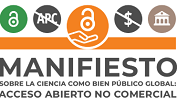
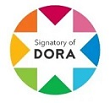
2.png)


